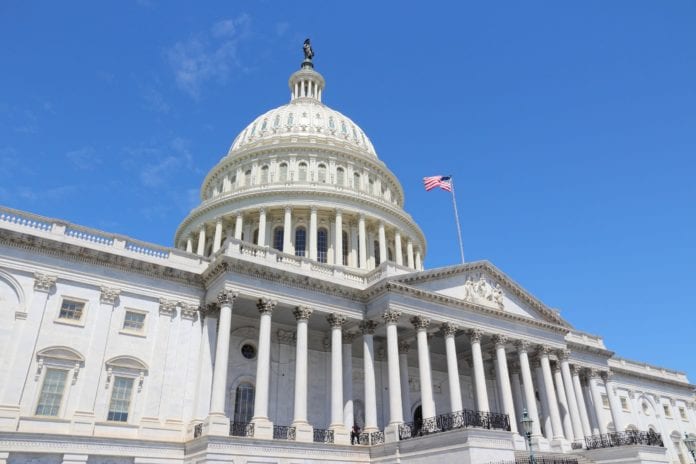As the internet of things continues to gain momentum, Congress is looking at how to assess the state of the industry and its relationship with federal agencies, via a new bill that focuses on answering a relatively simple question: In the IoT space, who is doing what?
The State of Modern Application, Research, and Trends of IoT Act — or SMART IoT Act — directs the secretary of commerce to conduct a study and report to Congress on the state of internet-connected devices. The bill was sponsored by Representatives Bob Latta (R-Ohio) and Peter Welch (D-Vermont) and recently passed the Subcommittee on Digital Commerce and Consumer Protection on a voice vote. Now it will proceed to the full Energy & Commerce Committee.
In his opening statement during the mark-up session for the bill, Latta — who serves as chairman of the subcommittee — called the bill “an important first step and foundation for future policy on IoT issues.
“We have heard from many stakeholders working on these important issues that because IoT is increasingly becoming ubiquitous, it is very difficult to know who is doing what – both in the federal government and in the private sector,” Latta said. “A lack of collaboration and dialogue presents the problem of creating unnecessary barriers to innovation – something we cannot afford to do if we want to unleash the power of IoT in the United States.”
Latta described the report that the bill outlines as a “compendium that answers a very important question at this stage in IoT development: who is doing what.
“At the federal level, this will help promote interagency discussions and help avoid conflicting or duplicative obligations or requirements that may slow innovation and progress,” Latta added. “At the industry level, this will help innovators and businesses know how entities are developing, using and promoting use of IoT solutions. It will also highlight industry-based efforts to self-regulate and provide industry with a one-stop-shop for a compilation of industry-based standards – both ones already in effect and those currently being developed.”
Within a year, the Department of Commerce must put together a report that includes:
- Surveying industry sectors which develop IoT devices
- Public-private partnerships, industry groups and international associations which are developing standards for IoT devices, and the status of such standards
- A description of IoT devices are developed, promoted, and used
- A comprehensive list of federal agencies which have jurisdiction over the entities and sectors which develop IoT devices
- Regulations, guidelines and policies adopted by those agencies related to IoT, including interagency efforts
- Information on federal resources available to consumers and small businesses to evaluate IoT devices
“The SMART IoT Act is a critical first step to future IoT policy efforts,” Latta said. “As we serve on this subcommittee, we have the opportunity to look 5 years, and farther, into the future to see where technology is headed. We have an obligation to do what we can to promote innovation, American competitiveness and technological advancements that benefit consumers. The SMART IoT Act does just that.”
“Congress needs to better understand the Internet of Things industry,” said Welch, noting that he and Latta started an IoT working group during the last Congress to help members understand IoT technologies and the ecosystem. Their bipartisan work also resulted in a recent hearing on the IoT space in which Intel was among the organizations which offered testimony, as well as an IoT showcase for members of Congress last week.
Subcommittee member Rep. Jan Schakowsky (D-Illinois) said in her opening statement that the SMART IoT Act’s report to Congress “should serve as the foundation for future legislative efforts as we work to ensure that interconnected devices are deployed to the benefit of American consumers,” while also noting that the hearing on IoT raised issues of “privacy and security and safety” that need to be addressed.
Subcommittee member Frank Pallone (D-New Jersey) said during the mark-up meeting that the study — particularly its compilation of which federal agencies have jurisdiction in the IoT space and what rules they have implemented, as well as how industry interacts with those agencies and what interagency work is occurring — “is important to see not only where there is room for improvement but where there may be gaps in oversight that need to be filled.”

